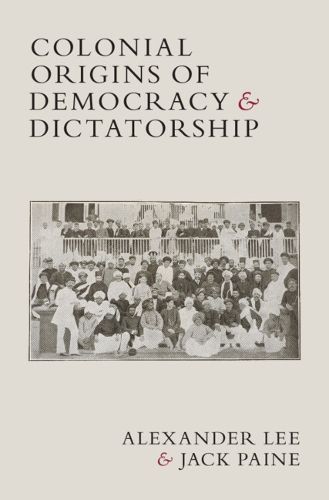Readings Newsletter
Become a Readings Member to make your shopping experience even easier.
Sign in or sign up for free!
You’re not far away from qualifying for FREE standard shipping within Australia
You’ve qualified for FREE standard shipping within Australia
The cart is loading…






Why are some countries more democratic than others? For most non-European countries, elections began under Western colonial rule. However, existing research largely overlooks these democratic origins. Analyzing a global sample of colonies across four centuries, this book explains the emergence of colonial electoral institutions and their lasting impact. The degree of democracy in the metropole, the size of the white settler population, and pressure from non-Europeans all shaped the timing and form of colonial elections. White settlers and non-white middle classes educated in the colonizer's language usually gained early elections but settler minorities resisted subsequent franchise expansion. Authoritarian metropoles blocked elections entirely. Countries with lengthy exposure to competitive colonial institutions tended to consolidate democracies after independence. By contrast, countries with shorter electoral episodes usually shed democratic institutions and countries that were denied colonial elections consolidated stable dictatorships. Regime trajectories shaped by colonial rule persist to the present day.
$9.00 standard shipping within Australia
FREE standard shipping within Australia for orders over $100.00
Express & International shipping calculated at checkout
Stock availability can be subject to change without notice. We recommend calling the shop or contacting our online team to check availability of low stock items. Please see our Shopping Online page for more details.
Why are some countries more democratic than others? For most non-European countries, elections began under Western colonial rule. However, existing research largely overlooks these democratic origins. Analyzing a global sample of colonies across four centuries, this book explains the emergence of colonial electoral institutions and their lasting impact. The degree of democracy in the metropole, the size of the white settler population, and pressure from non-Europeans all shaped the timing and form of colonial elections. White settlers and non-white middle classes educated in the colonizer's language usually gained early elections but settler minorities resisted subsequent franchise expansion. Authoritarian metropoles blocked elections entirely. Countries with lengthy exposure to competitive colonial institutions tended to consolidate democracies after independence. By contrast, countries with shorter electoral episodes usually shed democratic institutions and countries that were denied colonial elections consolidated stable dictatorships. Regime trajectories shaped by colonial rule persist to the present day.